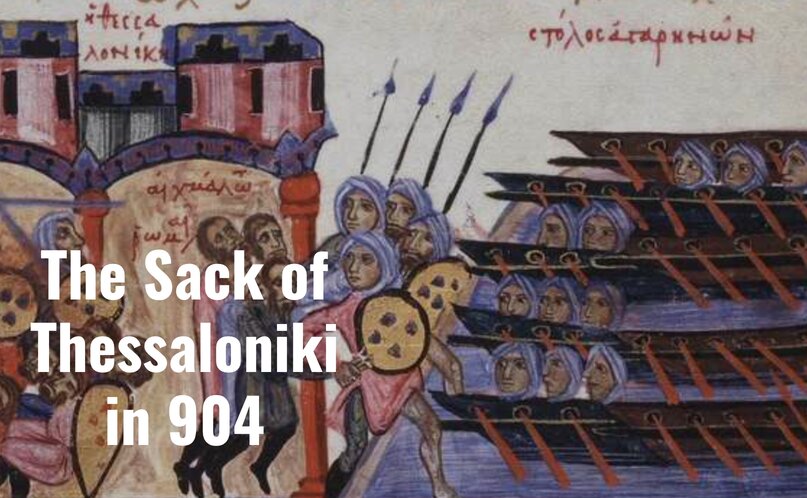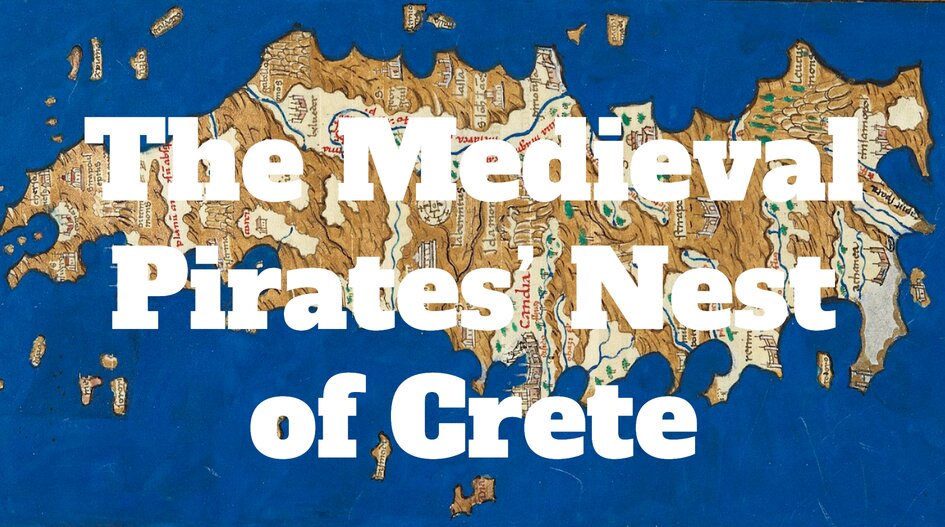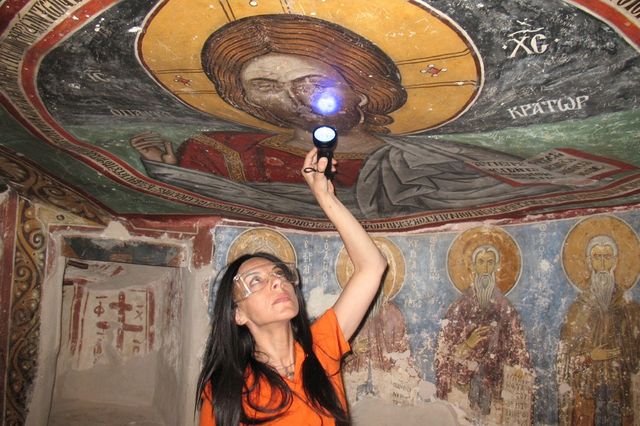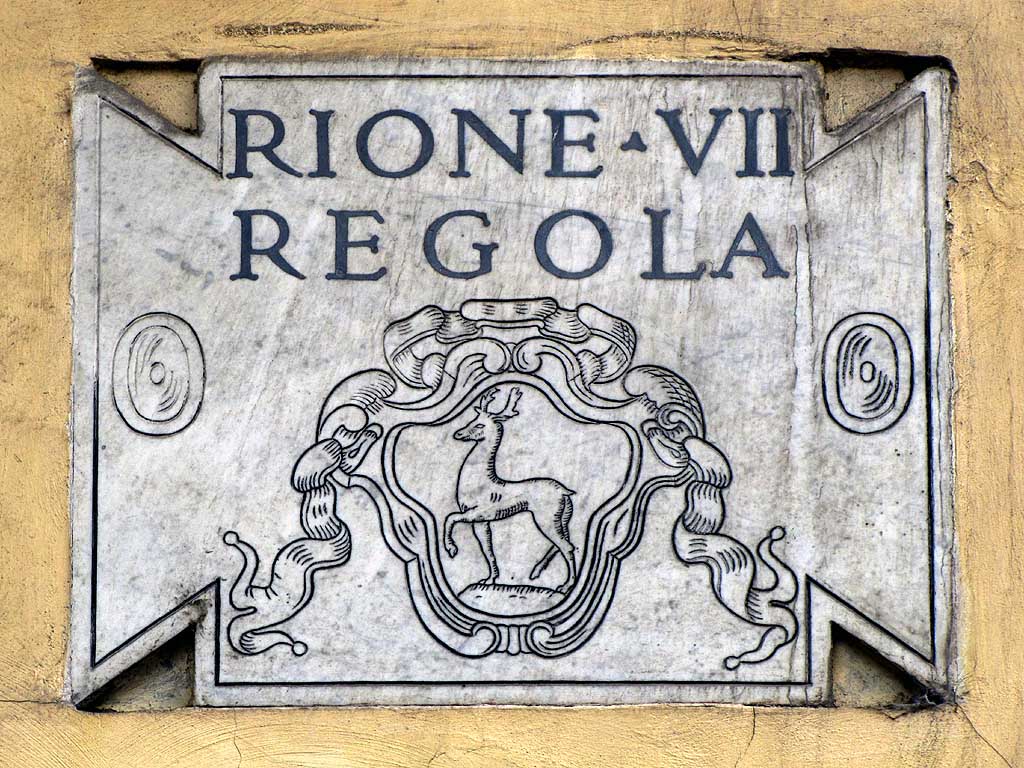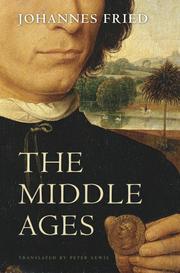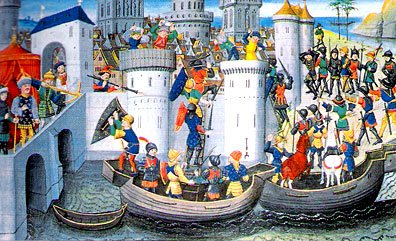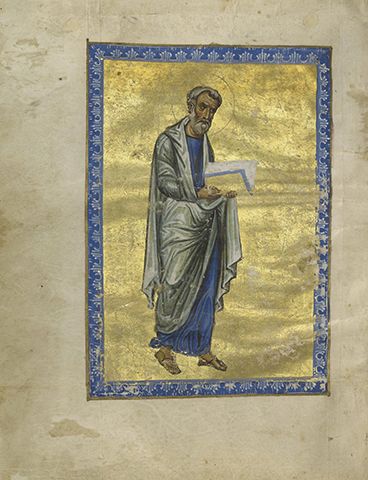Restoration Planned for the Palace of the Grand Master in Rhodes
The Greek Ministry of Culture has announced a major initiative to restore and enhance the Palace of the Grand Master on the island of Rhodes, a UNESCO World Heritage site.
Portrait of the Last Byzantine Emperor Discovered
Archaeologists in southern Greece have discovered a unique portrait of the last Byzantine emperor, Constantine XI Palaiologos, hidden within a layer of frescoes dating to the mid-15th century.
The Battles of Thermopylae
A rather unassuming spot in Greece has seen dozens of battles throughout history. On this episode of Bow & Blade, Michael Livingston and Kelly DeVries are joined by Myke Cole to talk about the book The Killing Ground: A Biography of Thermopylae, written by Michael and Myke.
The Sack of Thessaloniki in 904
It was in the summer of that year that a messenger from the Byzantine emperor Leo VI rushed into town with terrible news: Leo of Tripoli was on his way to attack Thessaloniki.
True Crusader Crime: The Mysterious ‘Lord S’
Who killed William of Rouen?
The politics of archaeological heritage and reclamation, with Jonathan Hall
A conversation with Jonathan Hall about how the archaeological past of the city of Argos was reclaimed in the long nineteenth century. What institutions and political debates took shape around the heritage of the past? What role did the ancient travel writer Pausanias play in defining what the past was? What was the interplay between local, national, international, and imperial interests?
The Medieval Pirates’ Nest of Crete
In the ninth century, the island of Crete would become a major base of piracy. Could the Byzantine Empire defeat this threat?
A global history of the Greeks, with Roderick Beaton
In this episode of Byzantium & Friends, a conversation with Roderick Beaton on his new book The Greeks: A Global History.
The Parthenon mosque, with Elizabeth Key Fowden
A conversation with Elizabeth Key Fowden on the Parthenon mosque and Athens under the Ottomans.
Byzantium in Modern Greek Life, with Dimitris Krallis
Where and how does one experience Byzantium in modern Greece today?
UCLA to establish Center for the Study of Hellenic Culture
A $5 million grant from the Stavros Niarchos Foundation will enable UCLA to create the UCLA Stavros Niarchos Foundation Center for the Study of Hellenic Culture.
Foundation Myths in Medieval and Renaissance Italy
The 3 papers featured here looked at the development of the civic identities of Florence, Genoa and Rome through art, architecture and foundation legends.
Medieval Books for Christmas
It’s that time of year again – the mad scramble for the perfect Christmas gift for the historian, nerd, avid reader on your list. Here are a few suggestions for you – new releases for December and January!
What Remains: Women, Relics and Remembrance in the Aftermath of the Fourth Crusade
After the fall of Constantinople to the Latin Crusaders in 1204 hundreds of relics were carried into the West as diplomatic gifts, memorabilia and tokens of victory. Yet many relics were alsosent privately between male crusaders and their spouses and female kin.
12th-century Byzantine manuscript returned to Greece
After being stolen from a monastery over fifty years ago, a 12th-century Byzantine manuscript has been returned to Greece by the J. Paul Getty Museum.
Church Reunification: Pope Urban II’s Papal Policy Towards the Christian East and Its Demise
What separates this brief work from that of previous historians is that it focuses on the formation and changes of papal policy in regards to the Eastern Orthodox Church during the First Crusade, exclusively.
‘Defending the Christian Faith with Our Blood’. The Battle of Lepanto (1571) and the Venetian Eastern Adriatic: Impact of a Global Conflict on the Mediterranean Periphery
The battle of Lepanto, which took place on the 7th of October 1571, was the greatest naval battle of oar driven vessels in the history of the Mediterranean1. It was then that the mighty Ottoman navy suffered its first and utter defeat in a direct confrontation with Christian forces, joined in the Holy League. Its purpose was to help Venice in the defence of Cyprus, stormed by the Ottoman troops in July of 1570, but to no avail, as on the 3rd of August 1571 the island was taken by the Ottomans.
Hellenism and the Shaping of the Byzantine Empire
While the role of Byzantine Hellenism on the art, literature, and society of the Empire has been the subject of tremendous study, the question of its origins has, nonetheless, rarely been raised, and the strongly Hellenic Byzantine identity seems, to a large extent, to have been taken for granted historiographically.
Praising A City: Nicaea, Trebizond, and Thessalonike
Praising A City: Nicaea, Trebizond, and Thessalonike Aslıhan Akışık Journal of Turkish Studies, Vol.36 (2012) Abstract The late Byzantine period(1204-1461) was distinguished by…
The Triumphal Way of Constantinople and the Golden Gate
In Rome the term triumphus referred to an archaic and highly regulated rite that was decreed by the Senate upon the fulfilment of certain strict preconditions. Scholars have disagreed whether the triumphal procession, which could be held only in Rome, always followed the same itinerary, but the chances are that it did
The Italo-Cretan Religious Painting and The Byzantine-Palaeologan Legacy
The paper aims to introduce the last significant school of painting, which was nurtured by the Byzantine sources, the so-called Italo-Cretan school, whose presence and influence lasted for more than 300 years. Its works are perceived not just as mere objects of veneration but have also high artistic and marketing value.
Pervenimus Edessam: The Origins of a Great Christian Centre Outside the Familiar Mediaeval World
This is the meeting place of the western and eastern worlds, for near here passed the movements between Palestine and Mesopotamia associated with Abraham, near here the Assyrians made their last stand after their capital fell in 610 B.C., and near here Crassus ill-advised attempt to press eastwards came to an end.
The ancient and medieval Greek writers perceptions concerning the relationship between sexual characteristics and testicular volume
Hippocrates (5th-4th c. BC) was the first Greek medical writer to leave a written re- port on the changes in the voice of eunuchs…
Pharmacy in medieval Islam and the history of drug addiction
Drug addiction, especially through the use of poppy (Papaver somniferum Linn.) and hemp (Cannabis sativa Linn.), is the main concern of this paper. Although the use of these two plants in medieval Islam was extensive, yet little has been written on this timely subject by historians of medicine and pharmacology.



